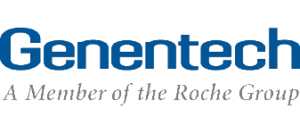
Tecentriq® (atezolizumab) is a monoclonal antibody designed to bind to the PD-L1 protein, enabling the immune system to detect and attack cancer cells more effectively. Cotellic® (cobimetinib) and Zelboraf® (vemurafenib) target and inhibit proteins involved in cancer cell growth and survival. The combination of these therapies is approved for the treatment of patients with BRAF V600 mutation-positive advanced melanoma. This combination has shown to extend progression-free survival in patients compared to the combination of Cotellic and Zelboraf alone.
Melanoma is a type of skin cancer that originates in the melanocytes, the cells responsible for producing melanin, the pigment that gives skin its color. It is the most serious form of skin cancer and can develop anywhere on the body, but it is most commonly found on areas exposed to the sun, such as the back, legs, arms, and face. Key risk factors include excessive UV exposure, fair skin, a history of sunburns, and genetic predisposition. Melanoma can spread to other parts of the body if not detected and treated early, making early diagnosis and treatment crucial. Treatment options include surgery, radiation, chemotherapy, targeted therapy, and immunotherapy, depending on the stage and characteristics of the cancer.
Companion diagnostic testing is crucial in determining whether a patient with advanced melanoma is eligible for the combination therapy of Tecentriq® (atezolizumab), Cotellic® (cobimetinib), and Zelboraf® (vemurafenib). This testing specifically identifies the presence of the BRAF V600 mutation in tumor cells. Approximately half of all melanomas have mutations in the BRAF gene, with the V600 mutation being the most common. The presence of this mutation is necessary for the effectiveness of Zelboraf® and Cotellic®, which target the mutated BRAF protein and the MEK pathway, respectively. Tecentriq® enhances the immune system’s ability to attack cancer cells by inhibiting PD-L1. By confirming the BRAF V600 mutation through companion diagnostic testing, oncologists can personalize treatment, ensuring that patients receive a therapy that is more likely to be effective, thereby improving outcomes and minimizing unnecessary exposure to treatments unlikely to benefit the patient.

Place a test order through your EMR system if enabled or order online by logging in or signing-up for a Foundation Medicine account. Orders can also be submitted via email or fax using our Test Requisition Form.
This combination therapy is used for the treatment of advanced melanoma that tests positive for the BRAF V600 mutation. It leverages the synergistic effects of targeting both the immune system and specific cancer growth pathways to improve patient outcomes.
Tecentriq® is an immunotherapy that targets PD-L1, enhancing the body’s immune response against cancer cells. Cotellic® inhibits MEK, a protein in the MAPK pathway, and Zelboraf® targets the mutated BRAF protein. Together, they inhibit tumor growth and proliferation while boosting immune system activity.
Patients with advanced melanoma who have the BRAF V600 mutation, as confirmed by companion diagnostic testing, are eligible for this combination therapy. This testing ensures that the treatment is personalized and targeted for those most likely to benefit.
Common side effects include rash, musculoskeletal pain, fatigue, liver enzyme elevation, fever, and nausea. More serious side effects can occur, and patients should be monitored regularly by their healthcare provider during treatment.
Tecentriq® is administered intravenously, typically at 1200 mg every three weeks. Cotellic® and Zelboraf® are taken orally, with specific dosing schedules determined by the healthcare provider based on the patient’s condition and response to treatment.
Companion diagnostic testing is essential to identify the presence of the BRAF V600 mutation in melanoma tumors. This ensures that only patients with this specific mutation receive the combination therapy, optimizing treatment effectiveness and minimizing unnecessary side effects.

Founded more than 40 years ago, Genentech is a leading biotechnology company that discovers, develops, manufactures and commercializes medicines to treat patients with serious and life-threatening medical conditions. The company, a member of the Roche Group, has headquarters in South San Francisco, California. For additional information about the company, please visit http://www.gene.com.